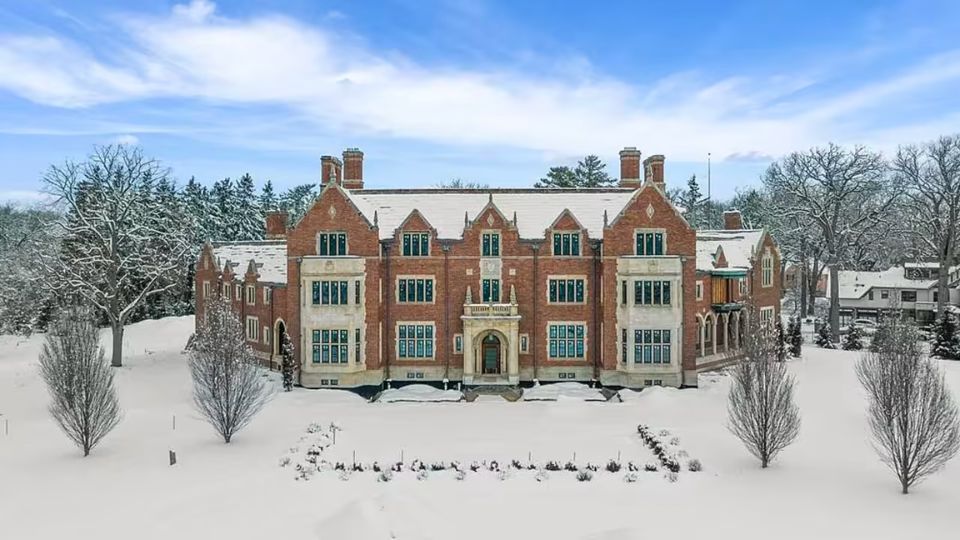The landscape of homeownership in Metro Detroit has undergone a significant shift, influenced by generational changes. This article delves into the current state of the housing market in this region, with a particular focus on the role of baby boomers and millennials.
Boomers: The Dominant Force in Metro Detroit’s Housing
Baby boomers, particularly those without children at home, have emerged as the predominant owners of large homes in Metro Detroit. Nationwide, empty nesters between 58 and 76 years old own about 28% of large homes, and in Metro Detroit, this figure is slightly lower at 27.6%. Interestingly, nearly half (45.5%) of one-to-two-person boomer households own large homes, a figure that is almost double that of millennial families with children.
The Changing Demographics of Homeownership
In the past decade, there’s been a notable shift in the demographics of large homeowners. In 2012, the Silent Generation (then aged 67-84) occupied a smaller share of large homes compared to Gen Xers with kids. However, baby boomers, even at that time, held a substantial portion of large houses. This trend has continued, with baby boomers now owning a comparable share of these homes as they did a decade ago.
Regional Variations
The ownership of large homes by empty-nest baby boomers is more prominent in affordable Rust Belt and southern metros. For example, in cities like Pittsburgh, Birmingham, and Cleveland, baby boomers account for roughly one-third of three-bedroom-plus homes. However, in more expensive metros like Riverside, Salt Lake City, and San Jose, their share is significantly smaller.
Millennials and Housing in Metro Detroit
While baby boomers lead in large home ownership, millennials with kids are next in line, albeit with a much smaller share. Approximately 27% of households consisting of millennials with kids own large homes. Many millennials either rent large homes, live in smaller units, or stay with family or roommates. It is notable that millennials with kids occupy no more than 18% of three-bedroom-plus homes in any metro area.
Detroit’s Homeownership Trends
In Detroit, there has been a modest increase in homeownership, albeit amidst a decline in the overall housing stock. The city saw a 1% increase in owner-occupied housing units since 2019, while the number of occupied housing units dropped by 6%. Despite this, the increase in homeownership and the decrease in renter-occupied units suggest a trend towards more people owning their homes in Detroit.
Also Read: Study Reveals 2 California Cities among Top 10 Most Liveable in US
Detroit’s Housing Challenges
Detroit’s housing challenges include a decline in housing units and skepticism about census figures. The city lost a significant number of housing units between 2019 and 2021, and there’s debate over the accuracy of these figures. The increase in homeownership is seen as a positive sign, aided by efforts like land bank’s home auctions and other programs.
Baby Boomer-Dominant Housing Markets
Detroit ranks 13th among large cities with the most baby boomer-owned homes. With 41% of homeowners being baby boomers and a baby boomer population share of 20.5%, Detroit has a significant number of baby boomer-owned and rented households. The median home price in Detroit stands at $38,721.
Conclusion
The housing landscape in Metro Detroit is shaped by the significant presence of baby boomers, especially those without children at home. This generational shift, along with the modest increase in overall homeownership in Detroit, reflects broader demographic and economic trends. While millennials are gradually making their mark, the dominance of baby boomers in the housing market remains a defining feature of Metro Detroit’s residential scene.
This analysis offers a comprehensive overview of the generational dynamics shaping the housing market in Metro Detroit, highlighting the central role of baby boomers in owning large homes and the evolving participation of millennials. The data underscores the complexity and regional variation in housing ownership patterns, providing a nuanced understanding of the current state and future trajectory of Metro Detroit’s residential landscape.



Leave a Reply